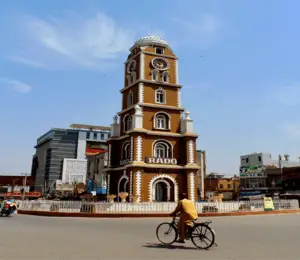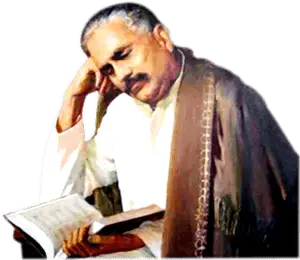About Sialkot City
Sialkot is a famous city in punjab province of Pakistan, full of history and exciting things to see. It located in the northeastern part of the province, near the border with India. This city is famous for its rich history and industrial significance, Sialkot also boasts a diverse and interesting geography
Sialkot district has four tehsils named as Tehsil sialkot, Sambial, Pasrur and Daska. Befor 1992 Narowal and shakargarh was also the tehsils of Sialkot district.
This city has great historical significance. Some historians saya this city as older city as Multan.
Why Sialkot city is so famous?
Sialkot is famous for its world-renowned sports goods, particularly hand-stitched footballs used in major international tournaments like the FIFA World Cup.

The city is also a leading manufacturer of high-quality surgical instruments and leather products. Additionally, Sialkot is celebrated for its rich cultural heritage, being the birthplace of Allama Iqbal, Pakistan’s national poet.
Location of Sialkot:
Sialkot is situated at an altitude of 256 meters (840 feet) above sea level. The city lies at the coordinates 32.5°N latitude and 74.5°E longitude. It is located near the Chenab River, which plays an important role in the region’s agriculture and economy.
Rivers and Water Bodies in Sialkot
The Chenab River is the major water body near Sialkot. It provides water for irrigation and is a source of livelihood for many local fishermen. The river also contributes to the fertile plains surrounding the city, making the area suitable for agriculture. Two links canal irrigate the area of sialkot BRB and Marala ravi link canal.
Cultural and Educational Institutions in Sialkot
Sialkot is home to several cultural and educational institutions that reflect the city’s commitment to preserving its heritage while fostering growth and development. A women university GCWUS, University of sialkot, Grand Asian university Sialkot and UMT also working in this City.
Colleges like Murry college Sialkot, Islamia college Sialkot, Punjab group colleges and Superior college also started working in the education sectors. Many skill development center are also opened in the sialkot city.
The Allama Iqbal Library, named after the famous poet and philosopher Allama Iqbal who was born in Sialkot, is a significant cultural landmark. The city also boasts numerous schools, colleges, and universities that provide quality education and contribute to the intellectual development of its residents.
Agriculture
Sialkot, a city known for its industrial and commercial prowess, also boasts a significant agricultural sector that plays a crucial role in the local economy. While the city’s fame largely stems from its sports goods and surgical instruments, the agricultural landscape of Sialkot contributes to its economic stability and sustenance.
This article explores the various facets of agriculture in Sialkot, including its major crops, farming practices, and the challenges faced by the agricultural community.
Wheat:
Wheat is another staple crop in Sialkot, forming the backbone of the agricultural sector. The wheat grown in this region is known for its quality, and it plays a vital role in ensuring food security for the local population.
Wheat harvesting typically takes place during the Rabi season, and the crop is used for both domestic consumption and commercial purposes.
Rice:
Rice is one of the primary crops cultivated in Sialkot, with the fertile plains and favorable climate providing ideal conditions for its growth. The region produces high-quality rice, including basmati, which is renowned for its aroma and taste. Rice farming not only meets local demand but also contributes to Pakistan’s rice exports.
Sugarcane:
Sugarcane cultivation is prevalent in Sialkot, contributing significantly to the local economy. The sugarcane produced here is used to manufacture sugar and various by-products, including molasses and ethanol.
The sugarcane industry supports numerous jobs and provides a steady source of income for farmers.
Maize:
Grown during the spring and summer, maize is used both as a food crop and as fodder for livestock.
Fruits and Vegetables:
In addition to staple crops, Sialkot’s agricultural landscape includes a variety of fruits and vegetables.
Commonly grown fruits include citrus fruits and guavas while vegetables such as potatoes, onions, and tomatoes are also widely cultivated. These crops are essential for local consumption and contribute to the nutritional needs of the population.
The Industrial Hub
Sports Goods Industry
Sialkot is globally recognized for its sports goods industry. The city produces high-quality sports equipment, including footballs, cricket gear, hockey sticks, and tennis rackets.
Many of these products are exported to international markets, including Europe, the United States, and the Middle East.
The FIFA World Cup, for instance, has seen official match balls produced by Sialkot-based companies, a testament to the city’s exceptional craftsmanship.
Surgical Instruments
In addition to sports goods, Sialkot is a leading manufacturer of surgical instruments.
The city’s skilled workforce and state-of-the-art manufacturing facilities ensure the production of high-precision medical instruments that meet international standards.
These instruments are exported worldwide, contributing significantly to Pakistan’s export revenue.
Leather and Textile Industries of Sialkot
Sialkot’s leather and textile industries are also noteworthy. The city produces a wide range of leather goods, including jackets, gloves, and bags, renowned for their quality and durability.
The textile sector, meanwhile, manufactures fabrics and garments that cater to both domestic and international markets. The combination of traditional techniques and modern technology ensures that Sialkot remains competitive in these industries.
Airports And Dry Ports
It is a bustling city in the Punjab province of Pakistan, is not only famous for its industrial prowess but also for its modern infrastructure, particularly its airports. The city’s air transportation facilities play a crucial role in supporting its economic activities and connecting it to global markets.
Sialkot International Airport (SKT)
Sialkot International Airport is the primary airport serving the city and its surrounding areas. It holds the distinction of being the first privately owned public airport in Pakistan. It is located in tehsile samberal in district sialkot.
Dry port
A dryport is also working in the sialkot near airport in samberal city. It facilitate the bussiness community of sialkot.
Shopping
Sialkot offers a range of Shopping. The local bazaars are bustling with activity, offering everything from traditional handicrafts to modern apparel. Sports goods, leather products, and surgical instruments are among the top buys, reflecting the city’s industrial strengths.
Delicious Food
Sialkot offers a delicious mix of traditional Punjabi food and modern flavors. From spicy street food to hearty traditional dishes
Famous Personalities
Sialkot, a historic city in Pakistan’s Punjab province, has produced many remarkable individuals who have made significant contributions to various fields such as literature, sports, politics, and the arts. These personalities have not only brought fame to Sialkot but have also left a lasting impact on Pakistan and the world.
Allama Iqbal (1877-1938)

Faiz Ahmed Faiz (1911-1984)
Rajendra Kumar (1927-1999)
Shoaib Malik (1982-Present)
Tourist Attractions
Iqbal Manzil:
The ancestral home of Allama Iqbal, now a museum, offers an insightful journey into the life and works of the poet.
Sialkot Fort:
A historical landmark that stands as a testament to the city’s ancient roots, offering panoramic views and a glimpse into its military history.
Marala Headworks:
A serene spot perfect for picnics and bird watching, located on the Chenab River.
Clock Tower:
Also known as Iqbal Square, this iconic structure is a popular meeting point and a symbol of Sialkot.
In short Sialkot is a city that seamlessly blends its rich historical heritage with modern industrial growth. It offers a unique experience to visitors, combining cultural richness, historical depth, and economic vibrancy. Whether you’re exploring its ancient landmarks, indulging in its culinary delights, or marveling at its industrial achievements, Sialkot promises an unforgettable journey.